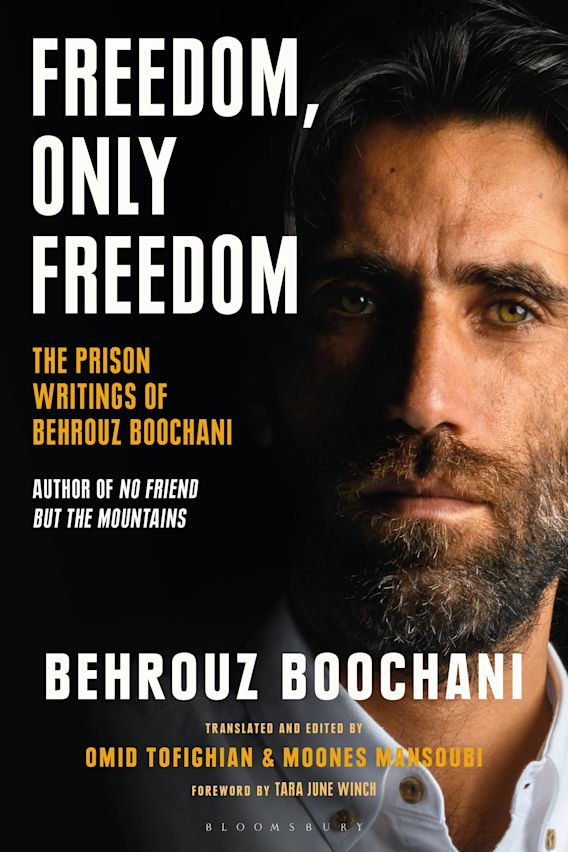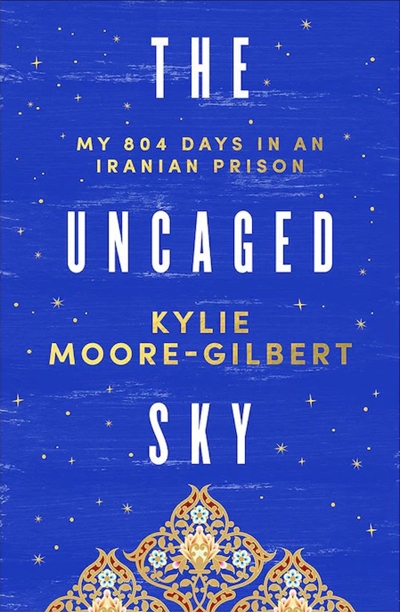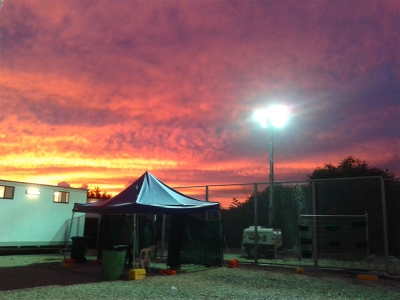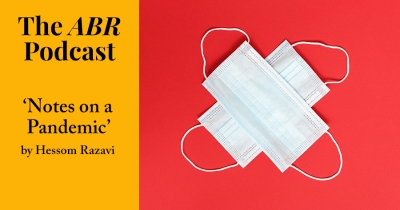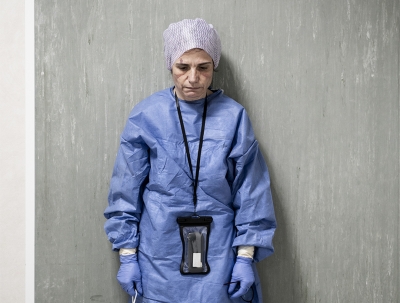Hessom Razavi
Film | Theatre | Art | Opera | Music | Television | Festivals
Welcome to ABR Arts, home to some of Australia's best arts journalism. We review film, theatre, opera, music, television, art exhibitions – and more. To read ABR Arts articles in full, subscribe to ABR or take out an ABR Arts subscription. Both packages give full access to our arts reviews the moment they are published online and to our extensive arts archive.
Meanwhile, the ABR Arts e-newsletter, published every second Tuesday, will keep you up-to-date as to our recent arts reviews.
Recent reviews
Freedom, Only Freedom by Behrouz Boochani, edited and translated by Omid Tofighian and Moones Mansoubi
Scene like a Banksy mural: / tiny Flower Thrower lobbing / blood and vernix onto our // chests, squirming pink- / purple skin gliding on Māmān, / alien as amniotic fluid,
... (read more)The Uncaged Sky: My 804 days in an Iranian prison by Kylie Moore-Gilbert
People seeking asylum are off trend. As the black and brown people on boats have stopped arriving on Australia’s shores, so has our interest in them waned. In commemoration, a boat-shaped trophy sits in Prime Minister Scott Morrison’s office, inscribed with the words ‘I Stopped These’. Today, Australians seem preoccupied by the vaccine roll-out and allegations of rape in parliament. With a federal election on the horizon, people seeking asylum and refugees seem passé, a case of ‘out of sight, out of mind’.
... (read more)In today's episode, Hessom Razavi – the ABR Behrouz Boochani Fellow – speaks to Peter Rose about his essay 'Failures of imagination: From Tehran’s prisons to Australia’s immigration detention centres', which appears in the November issue. Hessom's essay offers a powerful reflection on the experiences that led to his family fleeing Iran to escape political persecution. Navigating the 1979 Islamic Revolution, political rebellion, and tragic family disappearances, Razavi examines the similarities between Australia’s immigration detention centres and the political prison he visited as a boy – and contemplates how easily the detainees’ fate might have been his own.
... (read more)On 14 November 2019, Behrouz Boochani arrived in New Zealand, to feature in the WORD Christchurch literary festival. In so doing, Boochani, the Kurdish-Iranian writer, detained – or, in his words, exiled – by the Australian government for six years, finally escaped his ‘Manus Prison’. The details of his resettlement remained unclear, but it didn’t matter; he simply wanted to be ‘free for a while’. Around the world, on broadcast and social media, thousands celebrated Boochani’s ‘long flight to freedom’. This followed his award-winning book No Friend But the Mountains (2018), an autobiographical novel typed on his mobile phone using WhatsApp, one passage at a time. Smuggled from Manus in thousands of PDF files, it was translated from Farsi into English by his Iranian-Australian collaborator, Dr Omid Tofighian. For Boochani and those concerned with the plight of asylum seekers and refugees, his escape offered a rare moment of exultation.
... (read more)In his first article for ABR, 'Notes on a Pandemic', Behrouz Boochani Fellow Hessom Razavi offers a powerful reflection on the current Covid-19 crisis. Dr Razavi, an ophthalmologist, reflects on his own clinical experiences and interviews with senior medicos (including Dr Nick Coatsworth, the Deputy Chief Medical Officer) to provide a nuanced and compelling portrait of our changing lives. He examines the ways in which society has responded to the pandemic and questions what kind of world his daughter (due shortly) will be born into.
... (read more)I was operating when it arrived. Between patients I read the email hastily. It concerned an article from surgeons at Stanford University. Along with colleagues in the United States, Italy, China, and Iran, they were reporting an increased risk of death from Covid-19 among otolaryngologists, neurosurgeons – and ophthalmologists, like me. Surgery around the nasal passages or other mucous membranes of the face seemed to release a potentially lethal aerosolised load of the SARS-CoV-2 virus. Among the casualties were surgeons in their thirties.
... (read more)
